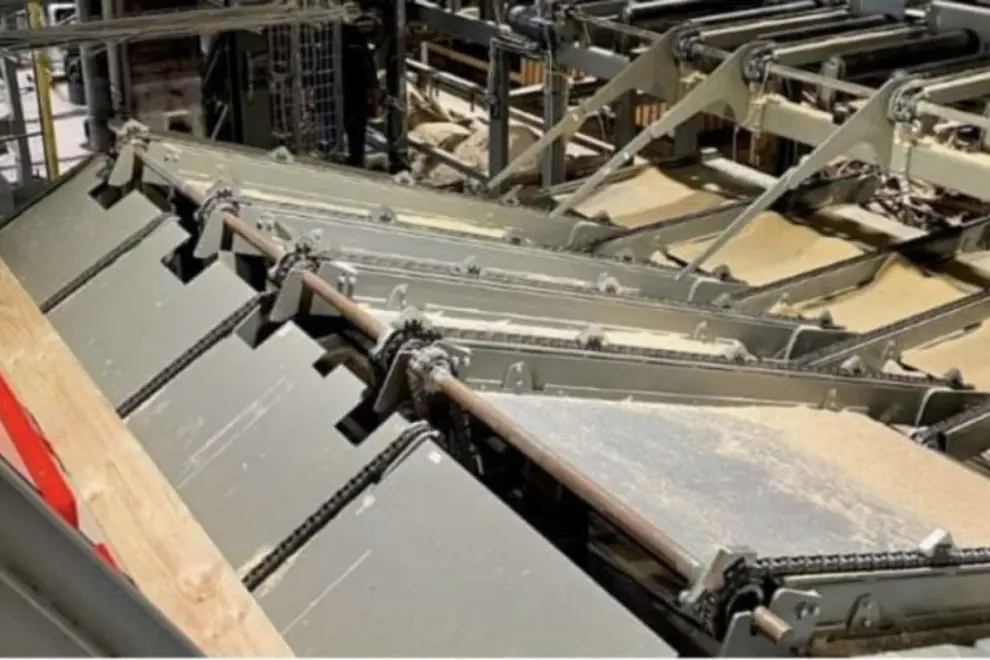Solis Timber, epitome of small company making it big
Strategically located near the lush forests of Kočevski Rog in south-eastern Slovenia, the family-run wood-processing business Solis Timber exports its products to more than 30 countries worldwide. Boasting a state-of-the-art sawmill and digitalised production, the company is also carving out a space for itself in the value-added timber market.
The story of Solis Timber starts in 1990 when Jože Zoran set up a small woodworking business. Nine years later, a sawmill was built but a lot of the work was still manual at the time.
In the coming years, the number of staff increased, and in 2007 Zoran and his wife Betka Zoran established Solis Timber, which was initially named Solis Straža after the town where the business is based.
After Zoran's daughter Kaja Zoran Ledinek joined the team in 2017, the company's headcount nearly tripled in two years and many investments followed.
Over the past three decades, the company has grown into a trailblazing enterprise employing 35 staff and posting €14.5 million in revenue last year.
Investing in new facilities or equipment, including one of the most modern sawmills in the country, development of new products, technologies and digitalisation, the Zoran family notes the utmost importance of innovation as well as timber and product quality.
The logs they use are sourced from local suppliers in Slovenia and Central and Southeast Europe, including Austria, Italy, Croatia and the Czech Republic, the company's director Zoran Ledinek says.

Solis Timber.
Their main activities are sawmilling, wood drying and planing with coniferous wood used in their processing. Planks, beams, panels and mouldings are some of the products they offer to customers in 33 countries in Europe, North America, Asia and Africa.
The by-products of their processes include chips, sawdust and pellets, which are then sold for heating. Their products are mainly used in the construction, furniture, joinery and packaging industries.
In the 21st century, the value of wood as a building material has been rediscovered, says Zoran Ledinek, who runs the company along with her father. Solis Timber strives to add value to its products and to promote the use of wood, thereby contributing to sustainable development.
In the wake of the Ukraine war, the timber industry, like many others, is facing new challenges. "Now there is no Russian or Belarusian wood in Europe anymore. The Russians and Belarusians have started exporting wood massively to China, Japan, Korea, other Asian countries and the Middle East, where they are making it hard for us with their lower selling prices," the director told the STA.
At the same time, wood and its processing are getting more expensive, partly because of the war and its impact on energy prices and other cost-related trends and partly due to the planned decrease in tree-cutting in Europe.
In a bid to stop the spread of bark beetles across Europe, conifer harvesting increased in recent years, but in the coming years it will be reduced, which will translate into higher prices, Zoran Ledinek says.
When asked about pros and cons of running a company in Slovenia, she says every country has its advantages and disadvantages. She would like to see reduced wage taxation and companies being able to get building permits sooner. That way they would be able to get their projects off the ground more swiftly.


